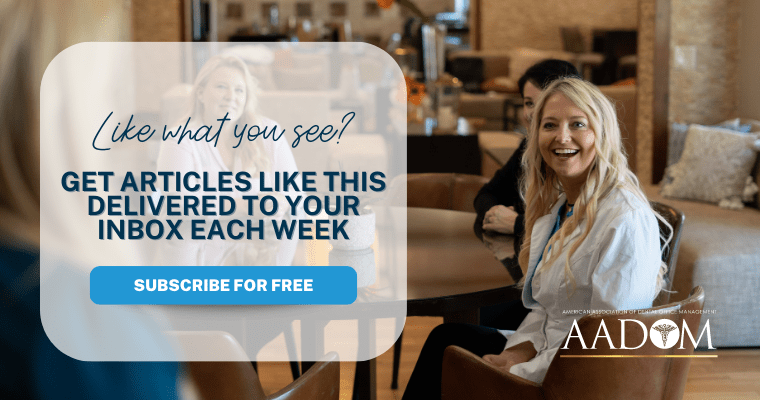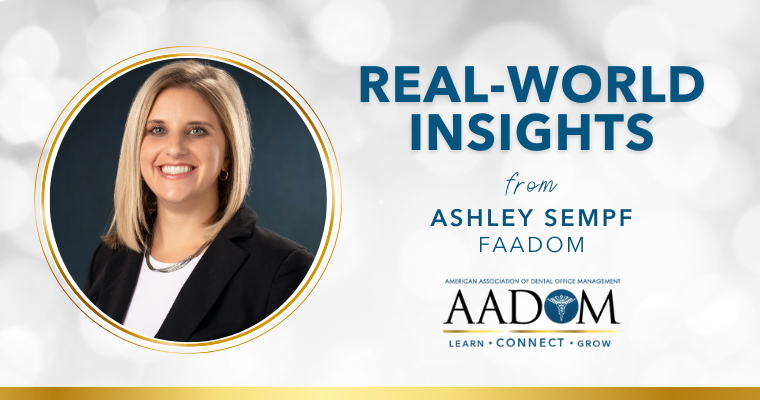I have been in the dental industry for 20 years. I live in a rural area where many people in the community are below the poverty level. A tremendous challenge in dentistry is low reimbursement from state medical assistance programs, which creates a shortage of care for those residents. Many residents in every state need medical assistance, and the reimbursement for providers is usually less than the average overhead to operate a dental practice. I understand entirely why dentists do not and cannot afford to fill their practice with this type of scenario. I completely understand why there is a shortage of care in rural areas. I want to find a solution to the problem.
I want to review why you can make it work in your practice and community. It may be a short-term loss, but it will be for a long-term gain.
A good portion of people who are on Medical Assistance are on it because they are struggling. They may be between jobs, have had a health issue that has temporarily brought them down, have just started a new family, etc. Most likely, they will get back on their feet and get insurance through a new job or a spouse’s employer. They will appreciate that you cared for them at their lowest, and in the end, you will gain a new lifelong patient with acceptable reimbursement.
Word-of-mouth referrals are a main source of new patient phone calls to the practice. Just because one may be on Medical Assistance doesn’t mean all of their friends or family members are in the same situation or social status. Let them bring in new patients for you.
If you have an opening in your schedule, you are bringing in $0.00. If you take patients with Medical Assistance, even as short-notice fill-ins to your schedule, you are covering some of your costs with a patient in your chair. Any dollar amount is better than zero.
I understand that dentistry is a business, but we are in business to serve our neighbors in the community. With them, you would have a business. Don’t feel like you have to take this on by yourself. If we change our mindset, we can do our part to tackle the shortage of care for our community. Together, we can improve the dental health of our communities.
People outside the industry must understand why providers won’t take medical assistance. Providers must remove the barriers to quality care by educating the people that make public policy. Please work with your local elected officials to educate them on the financial challenges faced by dental providers to meet the dental needs of our underprivileged neighbors. I spent seven years of working with the State of Wisconsin and the Wisconsin Dental Association to help transform care for the neediest of our communities. A pilot program was created in 2016 for five counties in Wisconsin to increase access to care and reimbursement, specifically for children and emergency care. The WDA and advocates for increased reimbursement were hoping to demonstrate that with increased reimbursement, additional providers would open their doors and provide care to more low-income residents. Even though there was not a massive increase in reimbursements, the increase proved successful. We continue to speak with our local officials as we still average less than 40% reimbursement for children and under 28% for adults. Hopefully, this will be the start of helping more Americans get dental care close to home. The continued relationship between the local government officials and our state dental association shines a light on problems we constantly battle in dentistry regarding care in rural areas. The state of Wisconsin increased reimbursement by 40% in January of 2022 because advocates for improved dental care educated state policymakers and provided practical solutions to improve access to dental care to members of our community who lacked the financial means to receive dental care. If dental providers continue to speak up as an industry in every state, we can positively impact our community and businesses. We will increase access to care, and more of our neighbors will see oral health as part of their overall health care.
Dentistry is so important, and the people who lack access to care need our help as professionals. We are here to serve and care for our community. Let’s all do a little to make a huge impact as one.

About the Author
 Ashley Sempf, FAADOM
Ashley Sempf, FAADOM
Ashley Sempf has a deep passion for healthcare and dentistry. She graduated with a degree in Registered Nursing and currently serves as the Chief Operations Officer for two dental practices in Wisconsin.
With over 20 years of experience in the field, she has found great fulfillment in her career in dentistry and looks forward to many more years in the profession.
Ashley is happily married to her wonderful husband, Rodney, and they have three beautiful children and two adorable grandchildren. In her free time, she enjoys traveling and spending quality time with her family.


